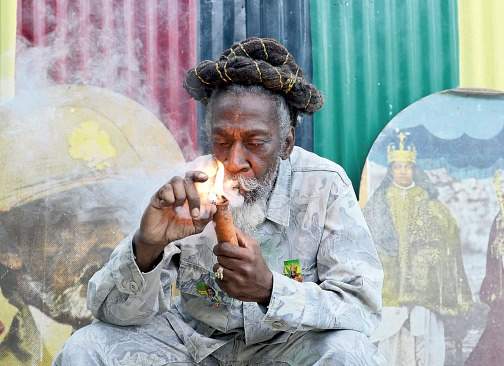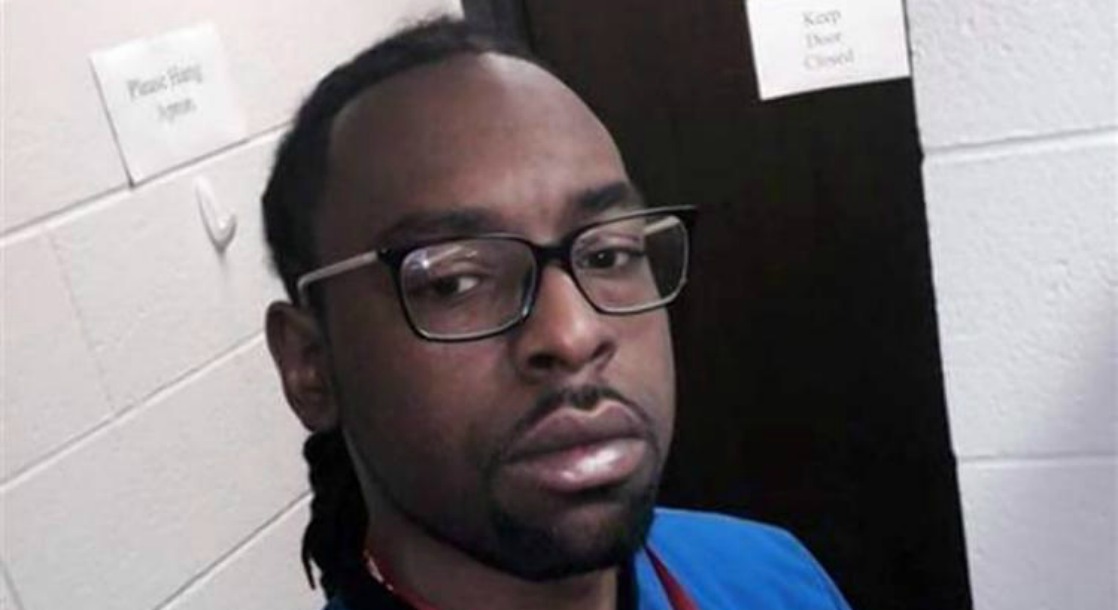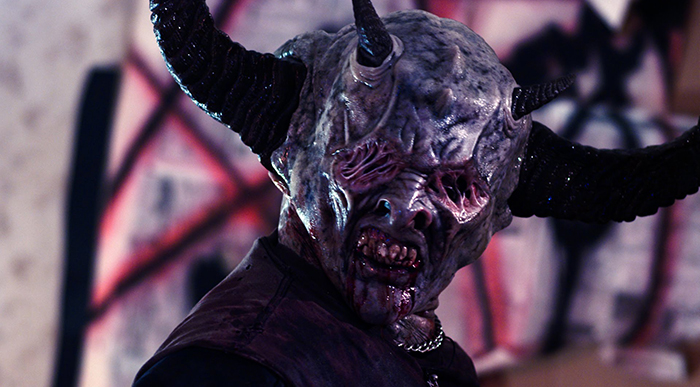Image via
A community of Rastafari in Ohio are fighting to help inspire their home state to create a socially equitable legal cannabis industry.
The Rastafari Coalition, based in Columbus, recently held an event to celebrate the 91st anniversary of Ethiopian Emperor Haile Selassie I, the traditional savior of the Rastafari faith. At the event, attendees played traditional Nyabinghi music, held prayers, and shared marijuana spliffs. The Rastafari believe that the use of ganja as a holy herb is specifically directed by the Bible, but despite this religious tradition, it is illegal to smoke weed in Ohio, much like most of the US.
“Cannabis is something that puts you in contact with the spiritual aspect of life in the physical body,” said Mosiyah Tafari, a member of the Rastafari Coalition, to the Associated Press. “It’s important for Rastafari because we follow the traditions of the Scriptures and we see that cannabis is good.”
Ohio activists and lawmakers have made several attempts to legalize adult-use pot via legislation or ballot measures, but none have come close to succeeding. The Buckeye State does have a modest medical marijuana industry, but smokable flower and home-grown weed remain prohibited. And like most of the US, the majority of Ohio’s legal weed businesses are white-owned, while members of communities most heavily impacted by the War on Drugs find themselves excluded from participating in this highly lucrative market.
“In this system, they’re very focused on, ‘Oh, we can make a lot of money, we can sell these medicinal cards, we can sell this ganja,’ but what of the people who have been persecuted?” said Rastafari Coalition member Ras Nyah, a music producer from the US Virgin Islands, to the AP. “What of the people who have been sent to jail, imprisoned, even killed. We must address these things before we get too ahead of ourselves.”
Legal adult-use cannabis may still be a pipe dream for conservative Ohio, but the home of the Rastafari movement has at least relaxed its prohibition of ganja. Jamaica legalized medical marijuana and decriminalized personal use in 2015, and in 2018, local farmers harvested the country’s first legal ganja crop since prohibition began. But even so, many Jamaican Rastafari are still being harassed by local cops over minor weed possession.
“Rastafari have had various challenges where they’ve had herbs confiscated and disappeared in police custody and continue to be abused in relation to claiming a sacramental right,” Jahlani Niaah, lecturer in Cultural and Rastafari Studies at Jamaica’s University of the West Indies, told the Associated Press. “There’s really a slip between the pen and the practice.”
And like the US, poorer farmers find themselves unable to afford the high costs of getting into the legal weed industry. In 2017, Jamaica launched a program to help indigenous farmers kickstart their own legal pot businesses, and expanded the program further last year. But despite the new program, many would-be weed farmers don’t own their own land, and even for those that do, setting up a small 1-acre farm can still cost thousands of dollars.
“The people who went to prison, who had to run up and down from police and police helicopters, they financially could not afford to get involved in the medical ganja industry,” said Ras Iyah V, Rastafari advocate and former member of Jamaica’s Cannabis Licensing Authority to the AP. “The cannabis industry has now been taken out of the hands of Rastafari and the traditional ganja farmers and placed in the hands of rich people. It makes us very bitter because we don’t see any justice in that.”











